Johanna Ross-Fraser: ‘She lived almost all her life in Scotland, but admitted that her soul was Russian’
Scottish Johanna Ross-Fraser, the granddaughter of the writer Eugenie Fraser, spoke about her Russian grandmother and the history of the publication of her book in Russia
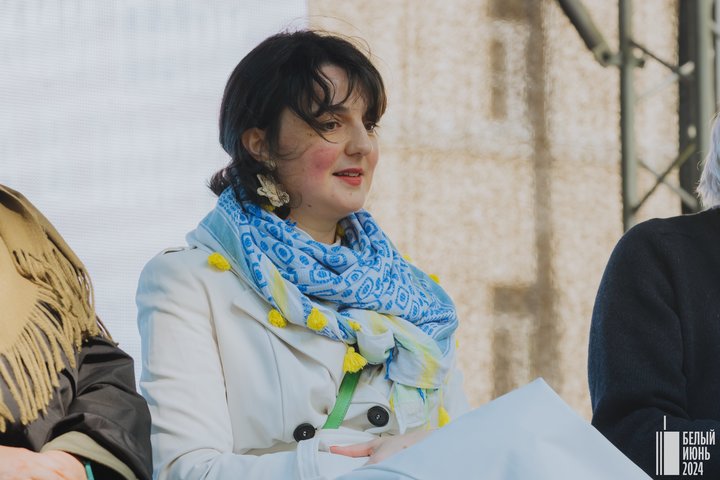
The story of the writer Eugenie Fraser is very cinematic. She was born on November 27, 1905 in Arkhangelsk to a Russian-Scottish family who was forced to emigrate after the 1917 revolution. Eugenie ended up in Scotland, where she eventually spent her entire life: she got married, had children and wrote several books. One of them was translated into Russian. Eugenie Fraser's granddaughter, Johanna Ross-Fraser, came to the White June International Book Festival, who actually looped the family history. Ekaterina Petrova, a literary columnist for Realnoe Vremya, talks about the fate of Eugenie Fraser's books in Russia.
History repeats itself
Many of Eugenie Fraser's paternal ancestors were Dutch and Germans who took an active part in the development of Arkhangelsk. They came to Russia at the invitation of Peter the Great to engage in ship construction and other business in the city. One of Eugenie Fraser's ancestors did not listen to his German mother and married a Russian peasant serf. From that moment on, the family converted to Orthodoxy and became Russian-speaking. This tradition almost ended after the 1917 revolution. Then the Fraser family had to quickly pack everything they could carry, sew jewelry into clothes and board a ship that was leaving for Scotland.
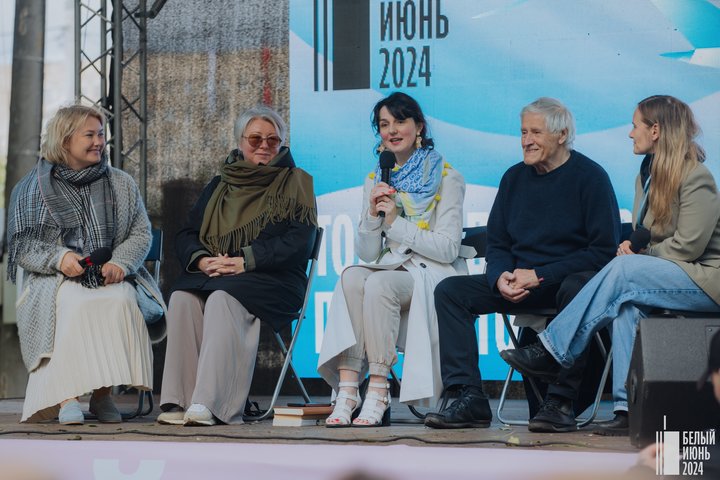
In Scotland, it was quite difficult to keep Russian as the main language of communication in the family, since her mother was Scottish. But Eugenie Fraser's granddaughter, Johanna Ross-Fraser, learned Russian as an adult and visited Russia, where she converted to Orthodoxy. And she also married a Russian.
Johanna said that since her early childhood she had heard about the mysterious city of Arkhangelsk and about the exotic country of Russia. These were always words associated with great emotions for both her father and her grandmother. Eugenie Fraser loved to tell them fairy tales about the adventures of her childhood and about the events in which her ancestors took part before the revolution of 1917 changed their lives forever. But despite all the difficulties that her family experienced, Johanna's grandmother remained forever Russian and passed on her love for Russia and for everything Russian to her father and her. She lived almost all her life in Scotland, but admitted that her soul is Russian, Johanna said.
Book with home delivery
Russia found out about Eugenie Fraser's book The House by the Dvina by chance. Several people from Arkhangelsk went to St. Petersburg for a music festival, which the writer also attended. There they met, talked, and Fraser told her fellow countrymen about her book, published in Scotland in English. After that, Tatyana Pushina, an employee of the department of foreign literature from the Arkhangelsk library, translated the book into Russian and showed it to Yury Barashkov, an architect, architectural historian and local historian. He came up with the idea to publish the book in Russia.
“I went to look for a sponsor for the publication of the book The House by the Dvina. No one gave money. I even wanted to appear on television and appeal to the Arkhangelsk city residents so that we could all add up three rubles and could publish the book. I won't go into financial passions, but we did publish the book. It was a creative challenge for me. The thing is that I have never edited books, I have no literary education. But Tanya Pushina's translation seemed technical to me, but it was necessary to make literature. And I did it passionately," Yury Barashkov said.
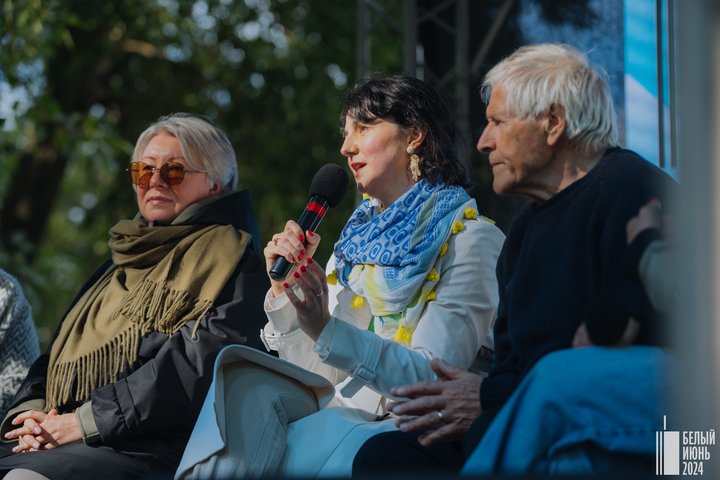
When The House by the Dvina appeared in Russian translation, Barashkov decided to give the book to Eugenie Fraser. But the trip required money, which the architect did not have.
“I was walking down the street and I was thinking how to take the book. And I met Volodya Yakovlev, who was then the director of the Dvina Hotel. I told him: 'Help me take the book.' He officially hired me and gave me the necessary amount," Barashkov said.
Then Barashkov went to Edinburgh, where he found Eugenie Fraser and came to visit her with two bottles of champagne. Yury Barashkov, Eugenie Fraser and her husband celebrated the book's release in Russia. By the way, the first publication of the work in the original language was published in 1984 and reprinted six times. It was also published in the Netherlands, the USA, Sweden and Finland. Thanks to the efforts of Yury Barashkov, the book was published in Russian in 1998. And four years later, on October 20, 2002, Eugenie Fraser died before she reached the age of 97.
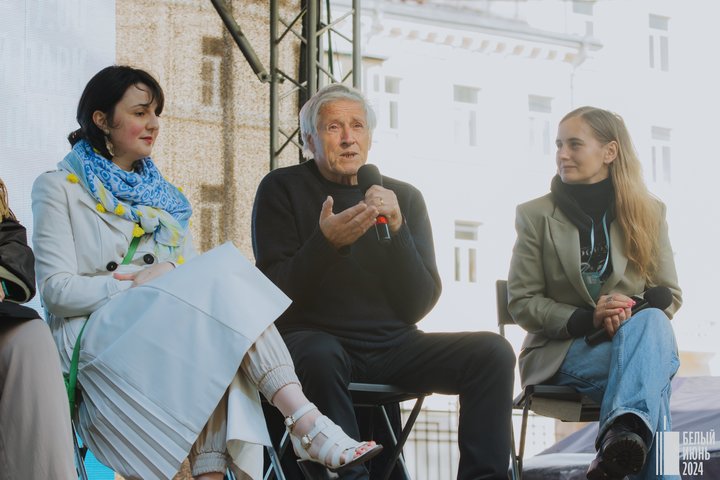
Yury Barashkov found a place in Arkhangelsk where the house of Eugenie Fraser's family once stood. I took the earth from there, scooped up water in a bottle from the Dvina River and went back to Scotland with such luggage. But this time, to sprinkle the Arkhangelsk earth on the coffin of the writer.
The Arkhangelsk Gone with the Wind
Eugenie Fraser's book is a touching memoir about her childhood spent in Arkhangelsk at the beginning of the 20th century, and about the subsequent changes in life caused by the revolution and emigration. The main focus is on describing Russian life, traditions and family relationships that contrast with life in Scotland. Through the prism of personal memories, the fate of two families is revealed — Russian and Scottish, united by the marriage of the writer's parents. Despite the difficult times, Fraser retained her love for her hometown and her loved ones, which made the book a heartfelt testimony to a bygone era. And all the participants in the conversation call this work the Arkhangelsk version of Gone with the Wind.
The House by the Dvina is not only a book about one family, Johanna said. This is a book about the history of Arkhangelsk and Russia, about the role of Europeans in the development of Arkhangelsk. With their participation, a city was created in which both Russians and Europeans experienced a difficult northern winter at the same time. Only together they were able to do it. Therefore, this book is a symbol of Russian-European cooperation. This should be especially noted in these difficult times in world politics, Johanna reminded. She also says that The House by the Dvina is a book about love. About the love between a Russian and a Scottish woman, about the love of their home, hometown and, eventually, their homeland. Despite that most of her great-grandfather's ancestors were foreigners, her grandmother considered herself Russian and was proud that her great-great-grandmother was a Russian serf, Johanna Ross-Fraser said.
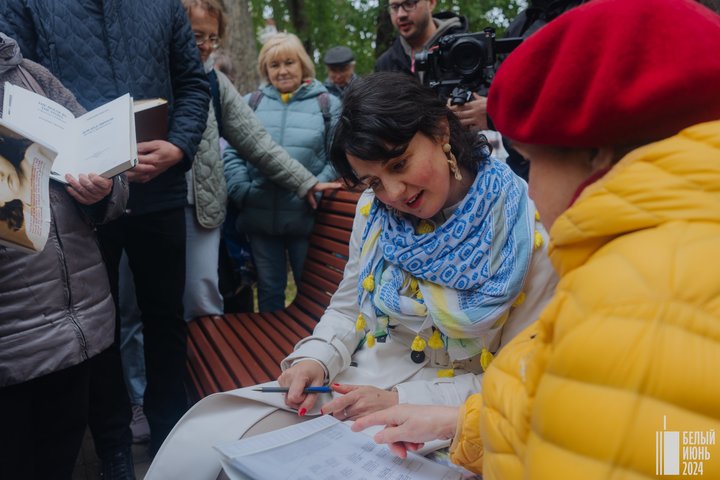
The House by the Dvina is the first book by Eugenie Fraser. In 1996, a sequel was released — The Dvina Remains. However, so far only in English. But now the republication of the first book and the translation of the second are being prepared.
“When I read Eugenie Fraser's books, I realised that this is not a small story about Arkhangelsk. This is a global story about all of us and about each of us who live now. Because global world events occur in approximately the same scenario. And the most ordinary people find themselves in the thick of these things. If we try to put ourselves in the place of these people or shift the events of the past to the present, then we will understand that this is what is happening in our country now. These books are primarily about the world. About world peace and about peace in the meaning of society and people," said Elena Yakovleva, a translator and the editor-in-chief of NoSugar Books publishing house.
Now Elena Yakovleva is in close contact with the writer's granddaughter to update the translation of the first book and translate the second into Russian for the first time.
Ekaterina Petrova — literary reviewer of Realnoe Vremya online newsppaer, author of Poppy Seed Muffins (Булочки с маком) telegram channel, and founder of the first online subscription book club Makulatura.